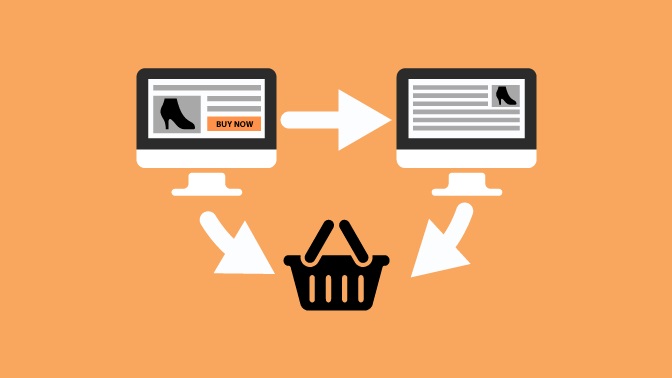Unbreakable Cookies – Remarketing
Have you ever noticed that Facebook shows you advertisements of the exact same product that you were searching for a few minutes ago? Is it coincidence? I think not. This apparent magic by Facebook is made possible with the help of a tracking code, with oddly, a cute enough name that we all know and love, “Cookie”.
Advertisers call this magic trick ‘retargeting’. Let us explain how this trick is pulled off. Imagine that while you casually browse for a product on a particular website, a tracking code is sneaked into your browser. Then if you leave without making any purchases, but continue to surf and browse around the internet, the cookies in your browser tracks the sites you visit and display ads for the product you were looking for. Isn’t it brilliant?
[/vc_column_text][vc_single_image image=”9235″ img_size=”medium” alignment=”center”][vc_column_text]
It is seen that only 2% of the visitors of a site become actual consumers. Remarketing helps the brand to increase their conversion rate. The advertisers use first party data to personalize ads for their potential customers, as for example, if you have searched for perfumes on a site, the ad that appears to you will only be about the perfumes. The ad is effective when it takes the user to a specific landing page (in this case the perfume section) rather than the homepage of the brand.
Site retargeting is the most popular method of retargeting, in site retargeting ads are shown in other sites and blogs as pop-up ads and Banner ads. Google display retargeting shows ads, that are relevant to the keywords used, on the search page. Facebook pixel gives an added advantage of combining both Facebook’s data and the site’s first party data for retargeting.
Email retargeting is different and complex comparatively. It is enough to make you think twice before signing up for anything. To make email remarketing work, the website collects the IP address of your system, using cookies.
Let’s say you signed up for a newsletter using your email address in site A. The cookies from site A collects your IP address. Then you browse on site B, here again your IP address is collected, but you did not submit your email id. Now it’s possible for site B to get your email id by matching the IP addresses in the Data Management platform, because you gave away your email id in site A.
[/vc_column_text][vc_single_image image=”9234″ img_size=”medium” alignment=”center”][vc_column_text]
The positive side to remarketing is that the potential customers will believe that the brand is the best among its competitors because they see the brand’s ad everywhere. The downside is that the potential customers will become annoyed and that might create negative associations with the brand. The outcomes lie on the frequency of the ads that appear in the consumer’s site.
P.S. we have also installed cookies in this article so that we could stalk you online forever.
[/vc_column_text]

